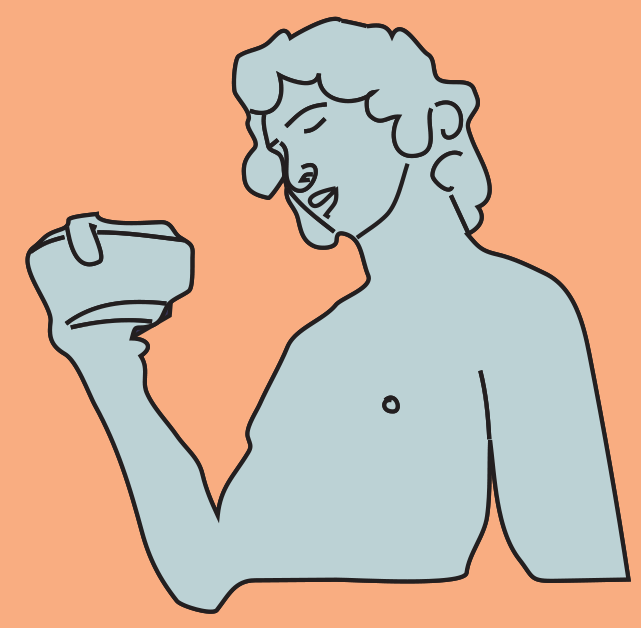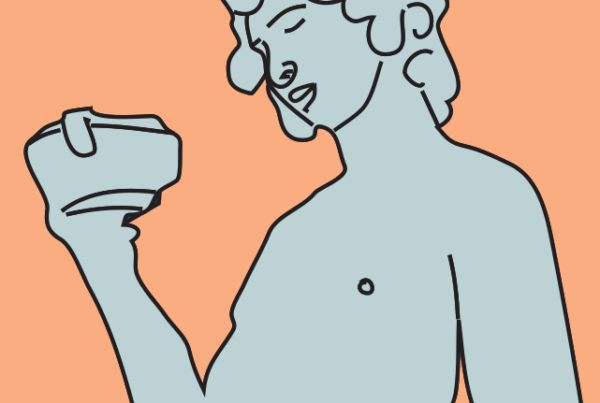

While you can’t travel the world physically, you can still travel it in your mind. With the pandemic exercising a lot of power on our lives, my mind has been wandering to memories of places where power is barely present. One of these memories took me back to the warm Iberian Peninsula.
A couple of years ago, I traveled to Portugal to volunteer at an organic farm in the beautiful Portuguese hills. The farm consisted of a few square kilometres of hilly land. It had a large vegetable garden, an old stone farmhouse, and a natural spring that fed the land. The place was inhabited by several animals and a farmer couple with their young children. Helping out on the farm was hard, but also gratifying work, and I learned a lot. It was an idyllic place to spend a large part of my summer.
In multiple ways, I felt like this farm was free of power. First of all, the place was very remote. To reach it, you had to take a train to a small village and from there, a bus to an even smaller (barely) village. Finally, you had to take the only taxi in the area to reach the final destination. Because of this remoteness, there was hardly anyone around – unless you count the animals. The authorities and the power they exercise were nowhere to be found, and in their absence, it felt like the rules and laws weren’t very present either. I was told, for example, that if you wanted to build a new structure like a barn, it would be a lot easier and cheaper to just straight-up build it, instead of trying to obtain the required permit first. It would take a long time before the authorities would find out about your new illegal barn and when they did (if ever), you could simply pay a fine and keep it. This system was a lot easier than entering endless procedures to obtain a permit and, in the end, it cost almost the same. I found it interesting that breaking the law and ignoring power this way seemed to be rewarding for most local farmers. The absence of authority was good for them.
Another way power was absent on the farm, was in a more literal sense. For volunteers, there was no electricity available. The farmhouse had electricity, but the volunteers slept in tents and couldn’t enter the house. We had to resort to a simple and natural way of living. The toilet was organic and didn’t use any water. The shower was fed by the natural spring and its water was heated by the sun – not by a solar panel, but by sunbeams shining on the pipes the water ran through. If you wanted to charge your phone, you had to walk to the nearest bar. This was a hike of about an hour in the hot sun, climbing multiple hills. It would take you the most part of your afternoon and then it wouldn’t even help you that much, as there was no signal at the farm. It took some adjusting, but it was actually a very relaxing and peaceful experience to stop using electronic devices for a while. This type of power did not seem necessary either.
Unsurprisingly, one of the farmers was also a big supporter of the absence of overarching power. He called himself an anarchist, which, in this context, should not be confused with someone that desires chaos. Anarchy is often associated with chaos, but social anarchism as an ideology does not strive for chaos at all. Social anarchists instead emphasize the importance of communities and social equality. The farmer wondered why it was necessary to have central authorities that exercise power when you can have equal, autonomous and self-supporting communities that help each other. He didn’t believe in national governments, since they often have no idea of what is going on locally, but still exercise their power all the same. He would also get very passionate about the global trade of products and food. The farmer thought that all items required to live a good life could be produced or traded locally, in a community where everyone is equal. When listening to this farmer, anarchy didn’t sound too bad at all.
Living off the grid for a while at a place like this Portuguese farm can really change your mindset about our current society. It is often said that you only start to miss something once it is gone, but I did not experience this feeling with power. Instead, I found myself enjoying the freedom that its absence afforded, and it became harder and harder for me to come up with arguments against the farmers’ reasoning for social anarchy. This feeling of freedom is something I miss now, in times of many restricting Covid-19 rules. Of course, both authority and electricity can be very useful. But, you can wonder whether they are always necessary (and sufficient) for living a happy, sustainable life. That, I don’t think they are. People can be very happy living off the (power) grid.

While you can’t travel the world physically, you can still travel it in your mind. With the pandemic exercising a lot of power on our lives, my mind has been wandering to memories of places where power is barely present. One of these memories took me back to the warm Iberian Peninsula.
A couple of years ago, I traveled to Portugal to volunteer at an organic farm in the beautiful Portuguese hills. The farm consisted of a few square kilometres of hilly land. It had a large vegetable garden, an old stone farmhouse, and a natural spring that fed the land. The place was inhabited by several animals and a farmer couple with their young children. Helping out on the farm was hard, but also gratifying work, and I learned a lot. It was an idyllic place to spend a large part of my summer.
In multiple ways, I felt like this farm was free of power. First of all, the place was very remote. To reach it, you had to take a train to a small village and from there, a bus to an even smaller (barely) village. Finally, you had to take the only taxi in the area to reach the final destination. Because of this remoteness, there was hardly anyone around – unless you count the animals. The authorities and the power they exercise were nowhere to be found, and in their absence, it felt like the rules and laws weren’t very present either. I was told, for example, that if you wanted to build a new structure like a barn, it would be a lot easier and cheaper to just straight-up build it, instead of trying to obtain the required permit first. It would take a long time before the authorities would find out about your new illegal barn and when they did (if ever), you could simply pay a fine and keep it. This system was a lot easier than entering endless procedures to obtain a permit and, in the end, it cost almost the same. I found it interesting that breaking the law and ignoring power this way seemed to be rewarding for most local farmers. The absence of authority was good for them.
Another way power was absent on the farm, was in a more literal sense. For volunteers, there was no electricity available. The farmhouse had electricity, but the volunteers slept in tents and couldn’t enter the house. We had to resort to a simple and natural way of living. The toilet was organic and didn’t use any water. The shower was fed by the natural spring and its water was heated by the sun – not by a solar panel, but by sunbeams shining on the pipes the water ran through. If you wanted to charge your phone, you had to walk to the nearest bar. This was a hike of about an hour in the hot sun, climbing multiple hills. It would take you the most part of your afternoon and then it wouldn’t even help you that much, as there was no signal at the farm. It took some adjusting, but it was actually a very relaxing and peaceful experience to stop using electronic devices for a while. This type of power did not seem necessary either.
Unsurprisingly, one of the farmers was also a big supporter of the absence of overarching power. He called himself an anarchist, which, in this context, should not be confused with someone that desires chaos. Anarchy is often associated with chaos, but social anarchism as an ideology does not strive for chaos at all. Social anarchists instead emphasize the importance of communities and social equality. The farmer wondered why it was necessary to have central authorities that exercise power when you can have equal, autonomous and self-supporting communities that help each other. He didn’t believe in national governments, since they often have no idea of what is going on locally, but still exercise their power all the same. He would also get very passionate about the global trade of products and food. The farmer thought that all items required to live a good life could be produced or traded locally, in a community where everyone is equal. When listening to this farmer, anarchy didn’t sound too bad at all.
Living off the grid for a while at a place like this Portuguese farm can really change your mindset about our current society. It is often said that you only start to miss something once it is gone, but I did not experience this feeling with power. Instead, I found myself enjoying the freedom that its absence afforded, and it became harder and harder for me to come up with arguments against the farmers’ reasoning for social anarchy. This feeling of freedom is something I miss now, in times of many restricting Covid-19 rules. Of course, both authority and electricity can be very useful. But, you can wonder whether they are always necessary (and sufficient) for living a happy, sustainable life. That, I don’t think they are. People can be very happy living off the (power) grid.


